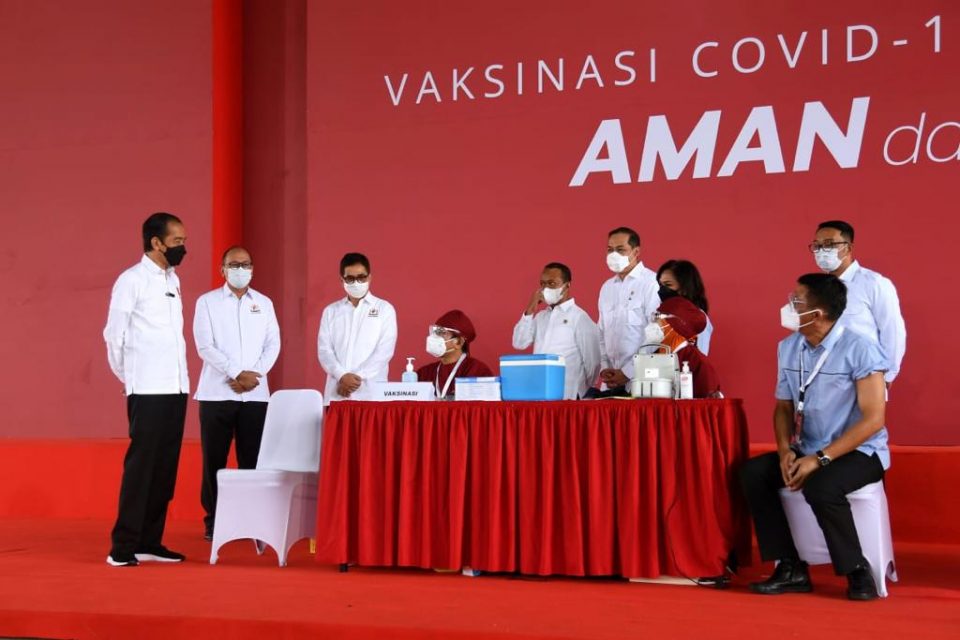Many criticisms were raised regarding the paid individual gotong royong vaccinations (VGR), leading to the plan being scrapped by the government.
Initially, the government had appointed PT Kimia Farma Tbk to carry out this individual payment vaccination. It was announced that this paid vaccination program was due to launch on 12th July 2021.
In the early stages, this individual vaccination service would have been available at eight Kimia Farma clinics located in the cities of Jakarta, Bandung, Semarang, Solo, Surabaya, and Bali, accommodating 1,700 participants per day.
After the announcement, the government received a range of public criticism, from the public workers, observers, consumer institutions, and the Indonesian House of Representatives. As a result, Kimia Farma stated that it decided to postpone the implementation of individual vaccinations.
“We apologise because the individual mutual cooperation vaccination schedule, which was set to start on Monday 12th July 2021, will be postponed until further notice,”
said Kimia Farma Corporate Secretary, Ganti Winarno Putro in his statement on Tuesday 13th July.
During the delay, criticism continued, even from the World Health Organization (WHO). Head of the WHO Immunisation Program Unit, Dr Ann Lindstrand, said that every citizen should have equal access to the COVID-19 vaccine. Moreover, the Delta variant, which is spreading rapidly in Indonesia, requires vaccine coverage that reaches the most vulnerable citizens.
“It is important that every citizen has an equal opportunity to gain access, and any payment can create ethical issues and access (the vaccine),” Ann said at a press conference on Friday 16th July.
Ann continued, Indonesia could access more free vaccines from international collaborations such as the Covax facility, a collaboration under the WHO, which will provide free vaccines to countries in need, instead of charging for the COVID-19 vaccine. If budget problems are the trigger for VGR, Indonesia can access this facility.
Regarding shipping costs and other burdensome costs, such as transportation, logistics, and vaccine storage, Indonesia can access funding from various international institutions.
“The funds should not be too much. What is important here is that everyone has the right and must have the right to access this vaccine regardless of financial problems,” said Ann.
With strong criticism from the public and WHO, the government decided to cancel the plan for paid individual gotong royong vaccinations. Cabinet Secretary Pramono Anung stated that the decision to cancel was a directive from President Joko Widodo (Jokowi).
“After receiving input and responses from the public, the President has given strict directions for the paid vaccines that are planned to be distributed through Kimia Farma, all of which are cancelled and revoked,” he said in the Presidential Secretariat’s YouTube channel on Friday 16th July.
Pramono ensured that vaccinations would still be free for the entire community. The gotong royong vaccination mechanism will be carried out as usual, where the company will bear the entire cost of vaccination for its employees.
“Thus, the mechanism for all vaccines, both the mutual cooperation and the current mechanism, has been running free of charge by the government,” said Pramono.




